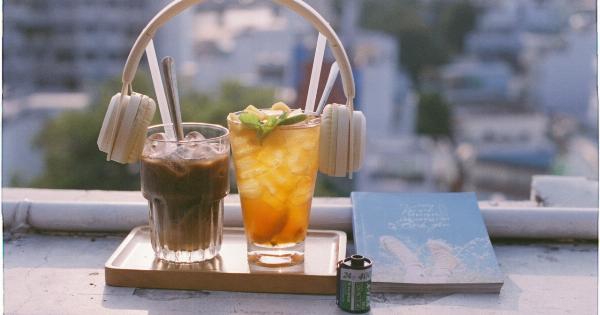Your hearing is an essential sense that helps you communicate and navigate the world around you. However, just like any other part of your body, your ears can be affected by daily habits.
In this article, we will explore some of the things you do every day that can affect your hearing and what you can do to protect your ears.
Listening to Loud Music with Headphones
One common habit that can damage your hearing is listening to loud music with headphones or earbuds. When you listen to music at high volumes, you expose your ears to sounds that can cause noise-induced hearing loss (NIHL).
NIHL occurs when the tiny hair cells in your inner ear are damaged, and you experience hearing loss or tinnitus (ringing in the ears). To prevent this, it’s crucial to use headphones or earbuds that fit snugly in your ears and don’t leak sound.
Additionally, experts recommend following the “60/60 rule,” which means listening to music at 60% of the maximum volume for 60 minutes at a time.
Using Cotton Swabs to Clean Your Ears
Another daily habit that can affect your hearing is using cotton swabs to clean your ears.
Contrary to popular belief, using cotton swabs to clean your ears can push the earwax deeper into your ear canal, leading to a blockage that can cause temporary hearing loss, tinnitus, or even pain and infection. Instead of using cotton swabs, you can clean your ears with a damp washcloth or ask your doctor to prescribe an earwax removal treatment.
Exposing Your Ears to Loud Noises
Exposing your ears to loud noises is one of the most common causes of hearing loss.
Whether you’re attending a concert, working in a noisy environment, or using power tools, prolonged exposure to sounds above 85 decibels (dB) can cause hearing damage. To protect your ears, you can wear earplugs or earmuffs to reduce the sound level. Additionally, you can take breaks from the loud noise to give your ears a rest.
Not Wearing Hearing Protection While Swimming
Swimming is an excellent form of exercise, but it can also affect your hearing.
When you swim in a pool or other bodies of water, the water can enter your ear canal and lead to ear infections or otitis externa (also known as “swimmer’s ear”). To prevent this, it’s essential to wear earplugs or a swim cap that covers your ears while swimming. Additionally, you can shake your head or use a gentle tug to remove the water from your ears.
Taking Certain Medications
Some medications can affect your hearing, particularly if taken in high doses or for long periods. For example, non-steroidal anti-inflammatory drugs (NSAIDs), such as aspirin and ibuprofen, can cause tinnitus or hearing loss.
Additionally, certain antibiotics, chemotherapy drugs, and diuretics can affect your hearing. If you’re taking any medication and notice changes in your hearing, contact your doctor immediately.
Smoking
Smoking is a habit that can affect almost every part of your body, including your ears. Tobacco smoke contains harmful chemicals that can reduce blood flow to your ears and damage the hair cells in your inner ear, leading to hearing loss.
Additionally, smoking can increase your risk of developing ear infections, which can affect your hearing. To protect your ears, the best thing you can do is quit smoking.
Not Getting Enough Sleep
Getting enough sleep is crucial for your overall health, including your hearing. Studies have shown that chronic sleep deprivation can affect your auditory processing and increase your risk of developing hearing problems.
Additionally, snoring or sleep apnea can affect your hearing, particularly in people with pre-existing hearing loss. To get better sleep, experts recommend creating a bedtime routine, avoiding caffeine and alcohol before bed, and sleeping in a quiet, dark, and cool room.
Ignoring Ear Infections
Ear infections are common, particularly in children, but they can also affect adults. Ignoring ear infections can lead to more severe health issues, including hearing loss and meningitis.
Symptoms of ear infections include ear pain, fever, ear drainage, and hearing loss. If you experience any of these symptoms, it’s crucial to see a doctor and get proper treatment as soon as possible.
Not Protecting Your Ears During Air Travel
When you’re on a plane, the changes in the air pressure can affect your ears and cause discomfort or pain. To protect your ears during air travel, experts recommend chewing gum, swallowing, or yawning to relieve the pressure.
Additionally, you can wear earplugs or noise-canceling headphones to reduce the noise level. If you have a cold or sinus infection, it’s essential to avoid air travel, as it can worsen your symptoms and affect your hearing.
Not Getting Regular Hearing Tests
Finally, one of the most critical things you can do to protect your hearing is to get regular hearing tests. Hearing tests can help identify any hearing loss or other issues early on, allowing you to take steps to prevent or manage them.
If you’re over 50 or have a history of hearing loss in your family, experts recommend getting tested every year or two.
Conclusion
Your ears are one of your most valuable assets, and it’s crucial to take care of them.
By avoiding these daily habits that can affect your hearing and taking measures to protect your ears, you can ensure that you have excellent hearing for years to come.





























